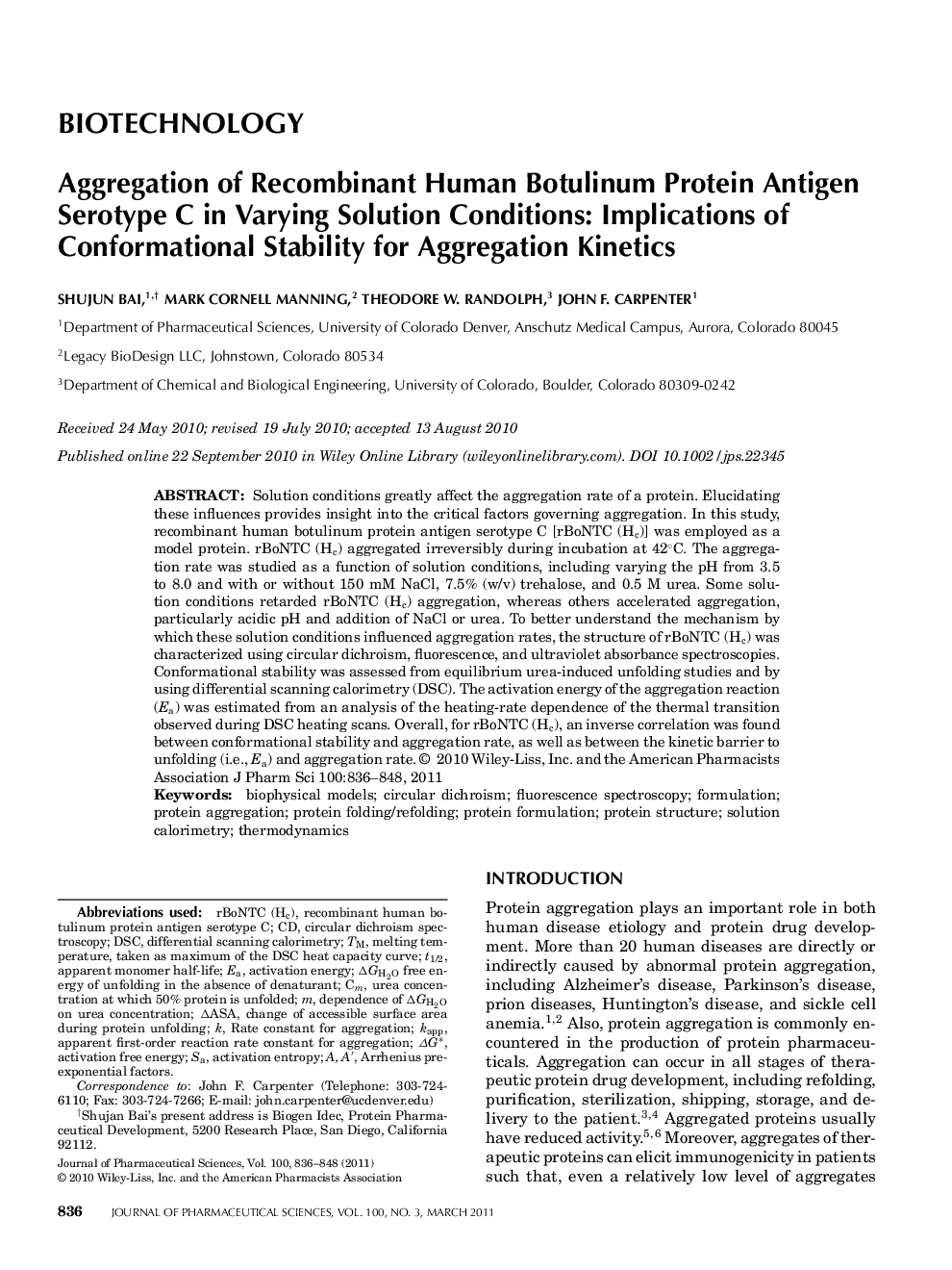| Article ID | Journal | Published Year | Pages | File Type |
|---|---|---|---|---|
| 2485801 | Journal of Pharmaceutical Sciences | 2011 | 13 Pages |
Abstract
Solution conditions greatly affect the aggregation rate of a protein. Elucidating these influences provides insight into the critical factors governing aggregation. In this study, recombinant human botulinum protein antigen serotype C [rBoNTC (Hc)] was employed as a model protein. rBoNTC (Hc) aggregated irreversibly during incubation at 42°C. The aggregation rate was studied as a function of solution conditions, including varying the pH from 3.5 to 8.0 and with or without 150 mM NaCl, 7.5% (w/v) trehalose, and 0.5 M urea. Some solution conditions retarded rBoNTC (Hc) aggregation, whereas others accelerated aggregation, particularly acidic pH and addition of NaCl or urea. To better understand the mechanism by which these solution conditions influenced aggregation rates, the structure of rBoNTC (Hc) was characterized using circular dichroism, fluorescence, and ultraviolet absorbance spectroscopies. Conformational stability was assessed from equilibrium urea-induced unfolding studies and by using differential scanning calorimetry (DSC). The activation energy of the aggregation reaction (Ea) was estimated from an analysis of the heating-rate dependence of the thermal transition observed during DSC heating scans. Overall, for rBoNTC (Hc), an inverse correlation was found between conformational stability and aggregation rate, as well as between the kinetic barrier to unfolding (i.e., Ea) and aggregation rate.
Keywords
Related Topics
Health Sciences
Pharmacology, Toxicology and Pharmaceutical Science
Drug Discovery
Authors
Shujun Bai, Mark Cornell Manning, Theodore W. Randolph, John F. Carpenter,
